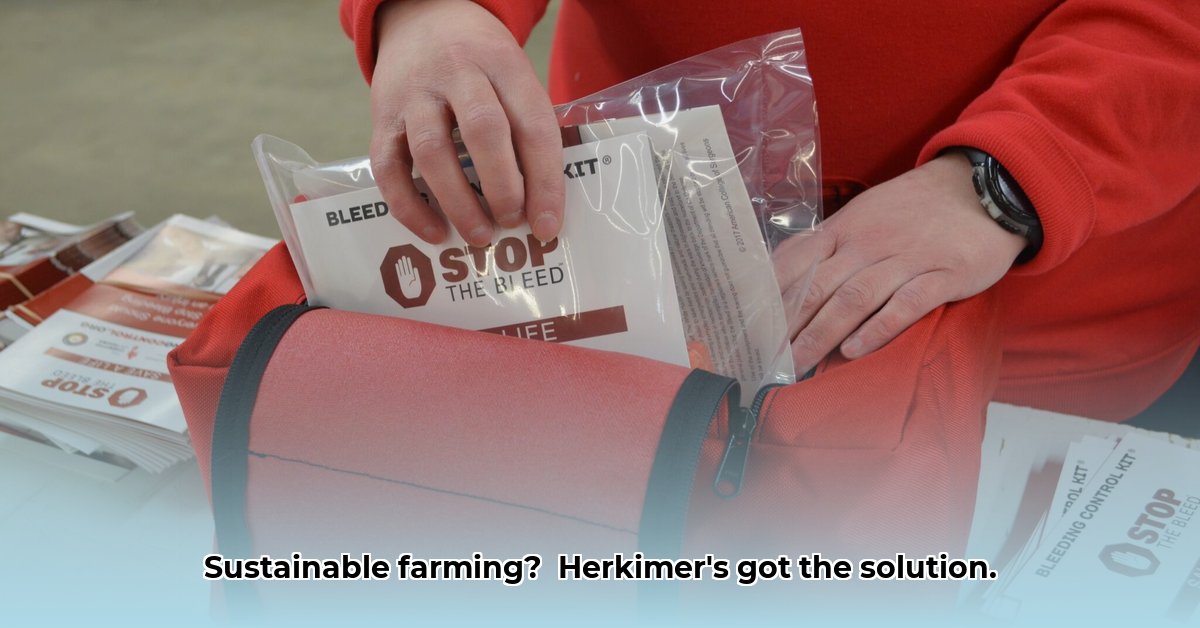
Herkimer Tractor Supply: A Community Cornerstone
Tractor Supply Company (TSC) in Herkimer, New York, serves as a vital resource for local farmers, acting as a central hub for agricultural supplies and services. Its accessible location and extended hours cater to the needs of the agricultural community, providing essential goods ranging from seeds and fertilizers to equipment repairs. This accessibility is crucial, especially for smaller farms that may lack alternative sourcing options. However, the extent to which this accessibility translates to sustainable agricultural practices requires further investigation. How does the ease of access to conventional supplies impact the adoption of sustainable farming methods? This is a key question we will explore. For more information on sustainable growing options, check out this resource.
Exploring Sustainability: The Evidence and Gaps
Currently, quantifiable data on TSC's direct contribution to sustainable agriculture in Herkimer remains limited. Precise figures regarding the percentage of sales representing environmentally friendly products or the complete environmental footprint of its supply chain are scarce. This lack of readily available information hinders a comprehensive assessment of TSC's overall impact. For example, we lack sufficient data to accurately gauge the demand for organic seeds or the adoption rate of sustainable farming practices among TSC's Herkimer clientele. "The absence of robust data makes it difficult to quantify TSC's direct influence on sustainable farming," notes Dr. Amelia Hernandez, Agricultural Economist at Cornell University. This lack of transparency necessitates further research.
Some argue that TSC's influence is primarily indirect, providing farmers with access to sustainable options alongside conventional ones. The farmers themselves ultimately decide which products to purchase. Others contend that TSC could play a more active role by prioritizing and promoting sustainable products more prominently. This highlights the need for comprehensive research to clarify TSC's impact.
Opportunities and Challenges for Sustainable Practices
To effectively assess and enhance TSC's contribution to sustainable agriculture, several key areas require attention:
1. Data Collection & Analysis: A comprehensive survey of TSC's Herkimer clientele is needed to gauge the usage of sustainable products and farming practices. Analyzing TSC's internal sales data, focusing on sales of organic and sustainable products, would offer a critical quantitative baseline. This would help answer the question: What percentage of HTS's customers actively engage in sustainable agricultural practices?
2. Stakeholder Engagement: Fostering open communication between TSC, local farmers, agricultural experts, and Herkimer County officials is vital. This collaborative approach can ensure that TSC's offerings align with local needs and the latest sustainable farming innovations. For instance, workshops and educational initiatives could be organized to educate farmers on the benefits and practical applications of sustainable methods.
3. Product Promotion & Education: TSC can proactively promote and market sustainable products through in-store displays, online platforms, and targeted advertising. Clear labeling highlighting the environmental benefits of these products is crucial. Educational materials explaining the advantages of sustainable practices would incentivize wider adoption. "Empowering farmers with knowledge about eco-friendly alternatives is a critical step," says John Miller, a Herkimer County farmer for over 30 years.
4. Transparency & Accountability: TSC should publicly report on its sustainability initiatives, outlining progress towards specific goals. This transparency fosters trust and accountability, allowing the public to track TSC's efforts. This could encompass annual reports detailing sustainable product sales, waste reduction strategies, and future improvement plans – all crucial for building confidence and encouraging broader participation.
Recommendations and Future Research
To gain a complete understanding of TSC's role, further research is essential. This includes:
- Quantitative Analysis: Analyzing TSC's sales data to determine the market share of sustainable products.
- Qualitative Research: Conducting extensive farmer surveys to understand their adoption of sustainable practices and the factors influencing their purchasing decisions.
- Supply Chain Assessment: Evaluating TSC’s supply chain to identify opportunities for reducing its environmental footprint.
- Comparative Study: Comparing TSC's sustainability practices with other agricultural supply companies.
This research should involve collaboration with local universities, agricultural organizations, and government agencies.
Conclusion
TSC's role in Herkimer’s agriculture is multifaceted and requires a nuanced understanding. While its accessibility is undoubtedly beneficial, further research is needed to definitively assess its contributions to sustainable agriculture. A collaborative approach involving TSC, farmers, researchers, and local officials is essential to promote sustainable farming practices and build a more environmentally responsible agricultural future for Herkimer. The potential for positive change is significant, but realizing it requires a sustained commitment to data-driven decision-making, open communication, and mutual accountability.